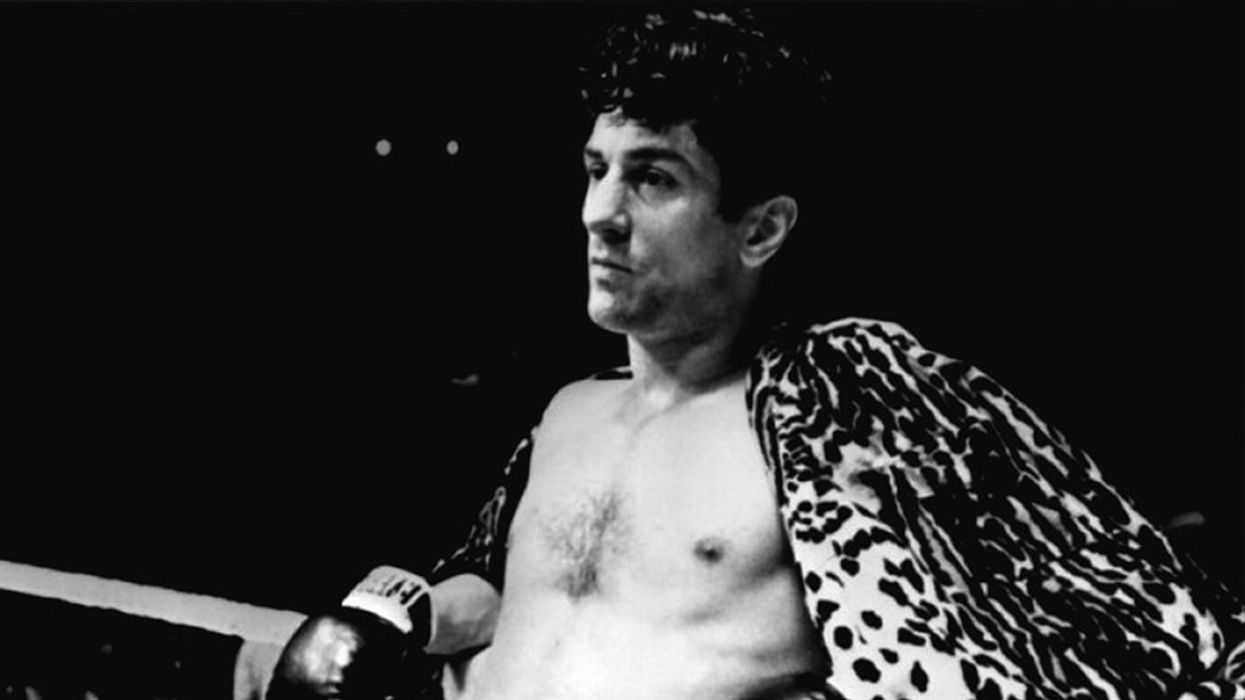'Raging Bull' and the Glory of the Unlikable Protagonist
Jake La Motta would definitely not save any cats.

Martin Scorsese's classic Raging Bull turned 40 this month, and I think that is the perfect time to revisit one of the worst tropes in all of storytelling, the "likable" protagonist. But first, let's wax poetic about this masterpiece.
Just a few short years after Taxi Driver, Robert De Niro teamed back up with Scorsese in a film that introduced unflinching realism to audiences in 1980. The New York Times said it was an "exceedingly violent as well as poetic" fight picture that maps "the landscape of the soul." Leonard Maltin called it "extraordinarily compelling."
Raging Bull garnered eight Oscar nominations and won two, including Best Actor for De Niro.
Operating with a method performance, De Niro gained and lost weight to portray La Motta at different stages of his life. He embodied the boxer's psychological and sexual complexities with violent force.
Beside him were Joe Pesci and Cathy Moriarty. Pesci plays De Niro's brother, and Moriarty plays his young bride. La Motta systematically destroys their lives as well as his own.
The movie is remarkable, and what makes it even more compelling today is that it defies every notion any book or blog tells you about writing. This is a movie about an asshole who never changes—he just gets sadder and worse.
And it is one of the best films of all time.
Raging Bull and the Unlikable Protagonist
One of my pet peeves is when people tell me your main character has to be likable. Throughout Hollywood history, we can pick out characters who have headlined movies that are actually despicable human beings. Usually, the way they got to the screen is that they are also very interesting.
Jake La Motta is one of the most interesting people to hit the big screen.
He's a hardened boxer who hates taking falls, wants his shot at the title, and whose flimsy ego is always his downfall. He's an insanely jealous and angry person. Someone who is always searching for those out to undermine him.
And there is always someone trying to undermine him.
This is a story about self-destruction.
The film's writer, Paul Schrader, once said of character creation, "There’s a mystery within the character. A good character has a mystery. Sometimes, you can have a sense of what that mystery is and sometimes you don’t want to know. Sometimes he goes off or she goes off and does something and you say, Why the hell did he do that?”
He said this mystery is “part of the fun of creating.”

Raging Bull is a movie about unraveling the character and exposing his mystery. No matter how many terrible things Jake does, we still are interested to see how he became the fat club promoter. How he squandered it all at the end.
As writers, we have to learn from this lesson. Your character does not have to be likable, but we should understand why they act. We should begin to learn about them and begin to see why this terrible person needs to be understood by us.
Telling someone the kinds of characters they can or cannot write is lazy. Be the writer who works extra hard to earn our attention on someone unlikable.
Schrader has another quote about filmmakers that I really think applies to Raging Bull. He said, “Filmmakers, by nature, are alpha beings. We look at the lions and we say, ‘Give us a whip. Give us a chair. I’m going to go into that cage and I’m going to make those lions sit up.’ But that’s not always the case. Sometimes the lions eat you and that has happened to me.”
Jake La Motta is an alpha begging for punishment. We see his character so clearly and we see his spiral even clearer. This a movie that makes you cringe, but it also makes you secretly hope for him. We hope things work out for him, even though we know they probably will not.
It's an interesting conundrum. And it would not be possible without our unlikeable protagonist.
Let me know what you think in the comments.











